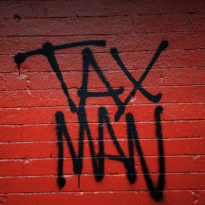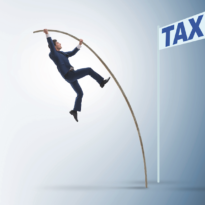Taxpayers will pay nearly £40 billion more in tax a year by 2028 as a result of the government’s freeze on tax thresholds and high inflation, new analysis has found.
The Resolution Foundation said government policy would lead to Britain’s biggest tax rise in at least 50 years.
A four-year freeze in personal tax thresholds was first announced in the 2021 Budget. At the time, it was forecast to raise £8 billion a year once fully rolled out in 2025-26. In the Autumn Statement 2022, Chancellor Jeremy Hunt announced a two-year extension of the policy through to 2027-28, as well as an additional freeze on employer National Insurance, raising a further £6 billion for government coffers.
However, the recent jump in inflation has “vastly increased” the size of this tax rise, according to the Foundation.
Higher inflation typically leads to higher wages, which will push more people into the next tax bracket. In March, the Office for Budget Responsibility forecast CPI inflation to have fallen to 5.4% by September 2023 but the latest Bank of England forecast from August suggests that inflation will be 6.9% in September.
Laura Suter, head of personal finance at AJ Bell, said: “These latest figures highlight the staggering impact that higher inflation will have on the amount of tax the nation is paying. The government’s decision to freeze the income tax thresholds at a time when inflation has gone off like a runaway train has boosted government coffers – but at a large cost for most UK households.
“Had income tax bands been linked to inflation, rather than frozen, we’d have seen a sizeable leap in the amount people could earn each year before hitting the next tax bracket. On top of the frozen allowances the government reduced the threshold for additional rate tax, dragging more people into the top rate of tax.
“While Jeremy Hunt will be rejoicing at the boost to his budget, it’s costing households at a time when their budgets are already stretched.”
AJ Bell said someone earning £50,000 a year will pay an extra £9,000 in tax across the six years of the threshold freeze. However, if the government had increased the headline level rate of taxation, rather than implementing a tax hike by stealth, the basic rate of tax would need to have risen to 23.5% from last tax year to generate the same total tax bill.
Suter continued: “The impact differs depending on an individual’s income. Someone on the average UK salary of £33,000 will be subject to the equivalent of an increase in the basic-rate of income tax to 22%. Meanwhile, a higher earner with £75,000 of earnings will be hit by the equivalent of both the basic-rate and higher-rates of tax increasing by three percentage points each, to 23% and 43% respectively.
“Imagine the uproar if the government had increased the basic rate of tax from 20% up to 23.5%. Not least because it would break a manifesto commitment. But most taxpayers don’t understand how ‘fiscal drag’ works or the real impact of the frozen allowances. What’s more, unless the government hikes tax thresholds by huge amounts in 2028, or overhauls the income tax system, it’s a fiscal drag that we’ll take forward for the rest of our working lives – those lost six years can never be reclaimed.”
Source: AJ Bell. Median UK salary is £33,000. All salaries are uprated with average wage inflation in line with the latest OBR forecast. Analysis compares the total income tax bill from 2022/23 tax year to the end of the 2027/28 tax year. Equivalent increase in the headline tax rate is the % rate of income tax (rounded to the nearest 0.5%) each individual would need to have paid to generate the same level of tax had thresholds instead been aligned to inflation.






























